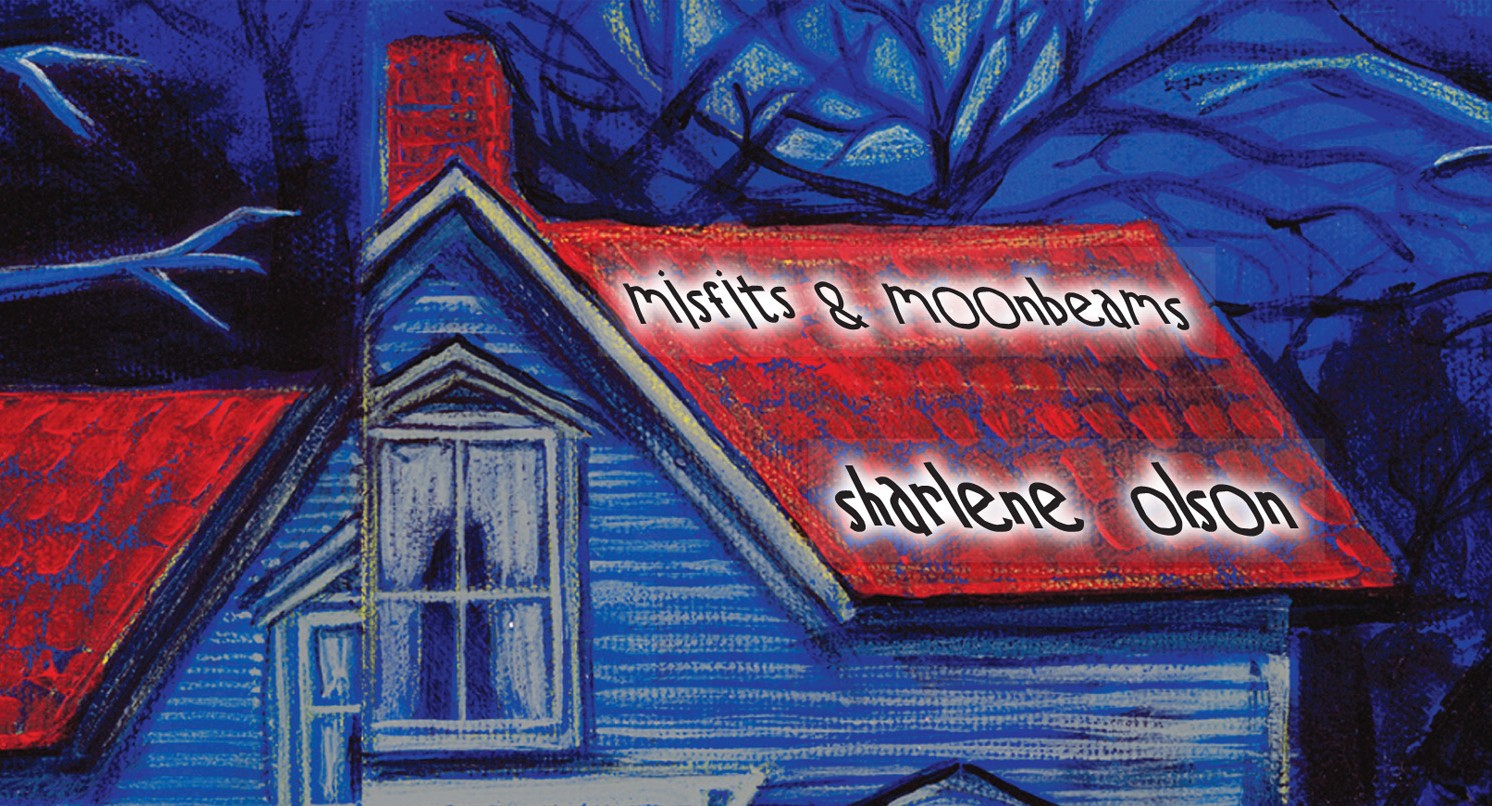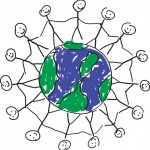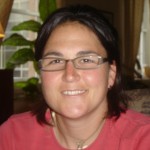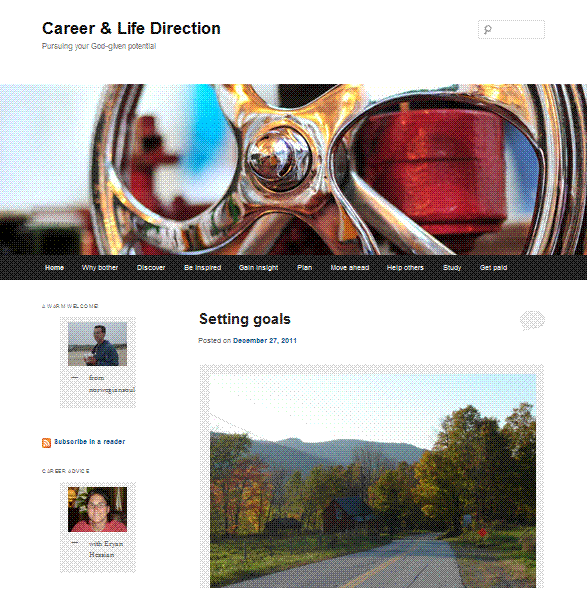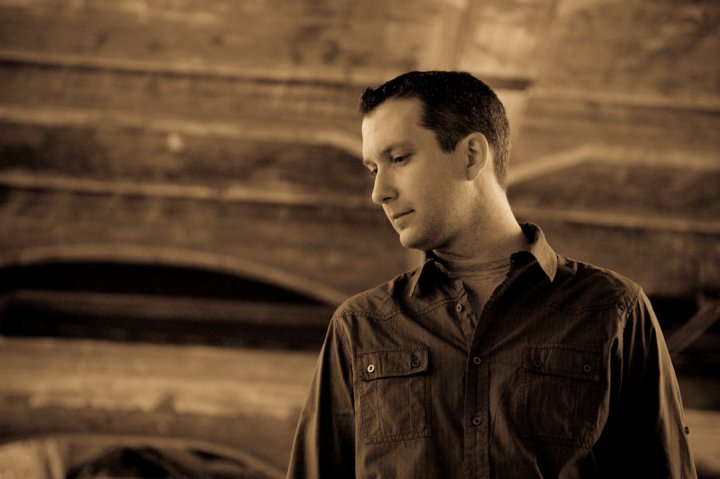StrengthsFinder 2.0
- At May 24, 2012
- By Nathan
- In Meeting Needs
 0
0
 How accurate is your vision? How clearly can you see yourself?
How accurate is your vision? How clearly can you see yourself?
If you are like most people, you probably have a hard time noticing what is wrong with you and what is right with you. It may well be that neither comes easy. For whatever reason, it is an incredible challenge for many to clearly perceive personal problems and potential. Can’t seem to cut through the haze.
So major faults go undetected for years while great gifts and talents lie dormant. Such is life. Your life and mine. All too often, that is how it seems to be – for a great number of people, anyway.
As you inch towards the end of your life you begin to wonder what could have been.
Call it part of being human. Trace it back to humanity’s historic fall. Try to blame it on biology and all those conniving chemicals. Connect it to the culture in your community. But, regardless of all reasons, the glory and shame of each person’s unique humanity often remains undetected. It flies, as it were, under the radar.
And it can take much more than a moment of clarity and insight to be able to say something like, “Hello, my name is _____ and I am an alcoholic.” Or “Hi, my name is_______ (please insert your own) and I am good at _____.” It can take years. It can take a lifetime. But it doesn’t have to.
There are ways to gain greater insight.
And yet, as you reflect on your life even now, don’t be surprised if it feels like there is no pressing need for any type of healing or forgiveness or growth and nothing much to get excited about either. You feel flat. Nice and numb. Nondescript. This sense of being okay in almost every way is normal; it is natural. This is common; it is also a serious human condition that results from what could be called subject-selective blindness.
One minute we have close to 20-20 vision, and the next…we can barely see. With this in mind, “I can see clearly…now that I am gone” would be an appropriate song to be playing in the background right about now. Although Johnny Nash might not exactly appreciate the lyrical adjustment.
It is, of course, much easier to spot strengths and weakness, virtue and vice, when the focus is on others – when the camera is pointed way over there. And I am no different – no exception. Then, we quickly find ourselves thinking or saying things like: “Oh, he is such a so-and-so.” Or “She is so good at…” Even then, our perception is never perfect or as reliable as we might think. But it is better.
Spend time in a coffee shop, if you live in Canada imagine Tim Horton’s, and you will overhear these types of comments and others like them. Children, friends, coaches, co-workers and employers are summed up and figured out fast. And somehow I doubt that the increased level of perception in such settings can be traced to all the caffeine and donuts.
We can see others but we can’t really see ourselves. Not usually. Not as well.
It works this way with countries and cultures too. Groups of people tend to notice what is right and wrong about other groups. Canadians, if the truth must be told, often look at Americans and feel simultaneously insecure and proud. Meanwhile, Americans look to Europe and so it goes. This world is full of self-consciously “nice” groups of people who feel that they are at least as nice if not nicer than the guys next door, and who – deep down – don’t think they really have much (or as much) to offer.
No matter where you live in the world, there is likely some person or group that you have a tendency to routinely judge or be jealous of.
It is very difficult to see when you are looking at yourself. And, as strange as it may sound, if you want to get to know yourself – if you want to see more clearly – you are going to need some help. Brace yourself. Because through his process you will usually discover that in some respects you are much worse than you think, and that in other areas you have more to offer than you ever imagined.
Alone, each observation may be more than you can manage. Taken together, the consequences can be confusing and overwhelming. But take your time. Take it all in. And then, take action.
If you are looking for some help discovering your strengths you might want to talk to Dr. Donald O. Clifton. But unfortunately that isn’t possible now. StrengthsFinder 2.0 is actually dedicated to Don Clifton, or, as he is often known, to the Father of Strengths Psychology. Don died in 2003.
And be assured that if you are uncomfortable with and occasionally suspicious of psychology you are in good company. As a practicing psychologist, from the sound of things Dr. Don got more than a little tired of all the talk about neurosis and negativity. He wanted to shift the conversation towards what was right with people. He wanted to help people understand and act on what they were actually good. at. This shift away from “negative” psychology determined his life direction.
Along the way, Dr. Clifton apparently found out that he liked doing surveys so much that he bought George Gallup’s company. This resource draws on conversations and interviews his company still conducts with a variety of people around the world. Buy this book ($30.60 Canadian) like I did and you will also be given an access code in order to complete a StrengthsFinder personal assessment. In this online assessment your results are compared to all the people they have been talking to over the years.
The StrengthsFinder team will tell you all about your top 5 (out of 34) themes. A theme is simply their way of talking about a collection of strengths. You will also be given 10 specific action steps that can be taken in order to develop each one of your areas of strength.
A variety of resources and strength development tools are available online. If, for example, you are looking for help identifying and developing your child’s potential, they have specific programs for that as well. StrengthExplorer and StrengthQuest are two assessment tools you might want to look into.
A word of clarification and caution:
StrengthsFinder 2.0 technically only claims to help you identify talents which could be developed into strengths someday. Nobody arrives on this earth fully developed. You may discover that you have a few specific God-given abilities that you were not really aware of. As a result, you have yet to take the time to develop these talents or abilities. In other words, this book might be useful to you insofar as it helps you determine where to focus the majority of your time and energy.
I play the guitar. And there was a period in my life when I was practicing 3-4 hours per day. But I came to the conclusion that this was a poor investment of my time. The reality is that I did not arrive on this planet with enough musical talent to make such a commitment worthwhile.
Finally, flipping through the themes provided by Gallup, I get the impression that this whole project isn’t just about strength identification and development. It also appears to be a way of getting a large number of people to think about their abilities in a way that fits with a specific philosophy of life or worldview. A worldview, by the way, that I have no interest in promoting and that seems to be inconsistent with the bulk of what is being said in this book.
That said, StrengthFinder 2.0 is a well-established resource that has helped many people, in various parts of this world, see more clearly. It has helped them discover and then develop their talents into strengths.
I hope it will do the same for you.
*One complimentary StrengthsFinder 2.0 personal assessment access code is available to the first person who writes in to request it
© Career & Life Direction 2012. All rights reserved.




